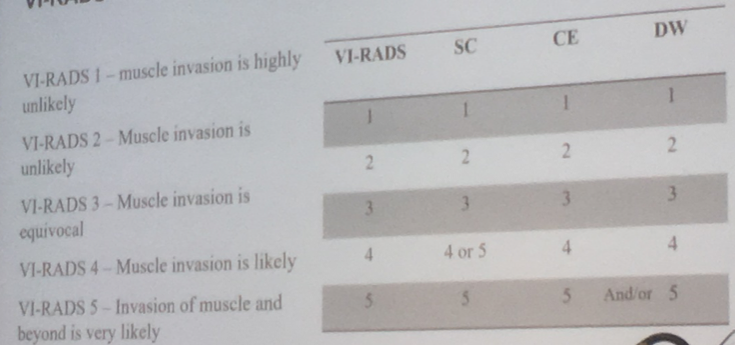Beginning this talk, Dr. Navai highlighted high rates of non-organ confined disease at cystectomy, even among patients with relatively low risk MIBC. Further, clinical and pathologic assessment using physical exam, TURBT pathology, and CT scan lacks the ability to accurately stage bladder cancers. Thus, Dr. Navai suggested that MRI may prove to be particularly valuable in this regard. However, to begin, he highlighted technical considerations for bladder MRI.
There are caveats with respect to the use of magnetic resonance imaging in bladder assessment, including:
#1. The requirement for adequate (but not excessive) bladder distension
#2. The potential need for pharmacotherapy to reduce visceral motion
#3. Recent TURBT or intravesical therapy may induce artifact, edema or inflammation
#4. The optimal timing of these studies has yet to be defined
Despite these caveats, there remains a significant potential benefit for MRI in local staging of muscle-invasive bladder cancer. Even when trying to granularly assess between T stages, there is relatively good concordance. However, potentially, more importantly, the positive and negative predictive values for extravesical and nodal disease demonstrate an ability to provide significant clinical utility.
In order to provide more reliable results, the ViRads system – Vesical Imaging Reporting and Data System was proposed. This is based on three criteria: a structural category, contrast enhancement and diffusion weighting.
A combined assessment of these three domains allows for the derivation of the overall ViRads score, on a 1 to 5 scale.
The use of the ViRads scoring system demonstrates strong agreement between 5 radiologists, with an ICCC of 0.85. Dr. Navai then closed by highlighted examples of patients with ViRads scores 1 through 5.
Presented by: Neema Navai, MD, Department of Urology, Division of Surgery, MD Anderson Cancer Center


